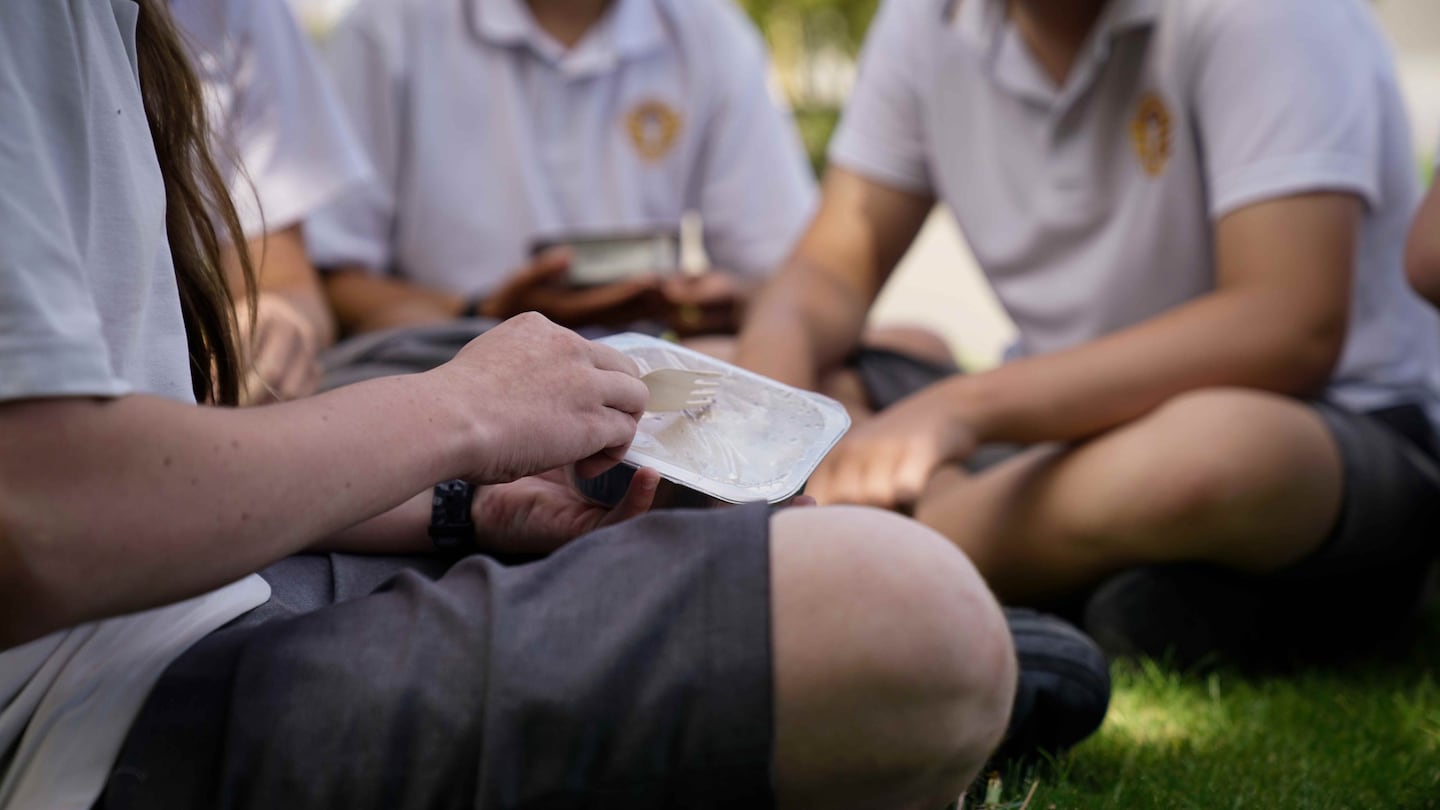Auckland’s free lunch programme is facing ongoing delivery and communication issues despite most schools returning to full attendance.
While some schools, like McAuley High School in Ōtahuhu, report timely lunch deliveries, others, such as De La Salle College and St Mary MacKillop Catholic School, have experienced significant problems, including missed and late deliveries.
School officials say they are frustrated over impersonal communication and its impact on students who sometimes go without lunches.
There are also concerns about the waste generated from these delivery delays.
Local politicians say the situation is unacceptable, particularly for families in high-deprivation areas reliant on the programme.
McAuley, which reopened last week with 200 students, now has its full student body of 800.Deputy Principal Miles Sengers said the lunches arrived on time this week, a relief compared to other schools that still experienced delays.
“The lunches have been arriving on time, so we’re thankful for that. The students have been eating on time, and the general feedback from the girls has been positive about the meals.”
Myles Hogarty, Principal of De La Salle College in Māngere, said they missed a delivery.
“There was one occasion, but the rest, there’s been some teething issues. I think we’ll just give them another few days,” he said.
When asked how the missed lunches affected students, Hogarty said, “We got through that. We’re okay. We’ll work it out.”
Mike Piper, Chair of the Māngere Principals’ Association and Principal of St Mary MacKillop Catholic School, shared a more challenging experience. His school received no lunches during the first week of the term and experienced late deliveries on Friday, which he says is problematic since school ends at 3pm.

With a school roll of 315 students, Piper said, “We received zero lunches on Thursday and Friday. Then, at around three o’clock, a guy in his station wagon showed up... it was a bit of a shambles.”
He said the school missed Monday’s delivery, and lunches were late on Tuesday and Wednesday.
“They turned up at quarter to three, and we’re like, ‘Mate, this is Friday, you’ve just got to take them, take them and go’. Then on Tuesday, they turned up at 20 to three, we said, ‘Mate, we’ll give it a shot,’ and we just gave them out of the gate to our families to take home.”
With uncertain communication and irregular deliveries, Piper said he and his staff would “just have to up our game because their delivery at the moment is just ordinary … I don’t think they have the answers themselves.”
He expressed frustration with the impersonal communication system. “We don’t know these people. You know, new lunch system, new routines, new people. … That’s a lot of the frustrating part to it.
“Last year, you had a person who looked after you. They’d grumble at us if we did too much waste or something like that. And it was quite good. You were able to work through a process. But there’s nothing personal about this. And we don’t even know who to call, really.”
Piper also noted the toll on the staff involved. “We see these people come to visit us, and they look absolutely busted and shattered. And they’re so under the pump, almost out of their depth around what they’ve tried to take on and how they’ve tried to do it.”
He said due to the ongoing issues, students are going without school lunches and emails explaining the delays have not been satisfactory.
“There’s a big general email apologising and saying ‘sorry, we’re working on it’ …. then we have had a couple of visits from people at random times that come in and say hello and drop off. But they just look absolutely shattered themselves and don’t have the answers. And all they can say to you is listen, I apologise, I apologise. And that’s all they can do.”
“In some ways, you feel a bit sorry for them because they’re like the messenger. So I’ve had two of those guys come in, two different ladies, and they just haven’t had any answers.”
Piper said the school has had to step in. “We’ve just had to up our game. We went up the road, got some bread, fruit, and muesli bars, and did our own little school lunch delivery.”
He said the lunch programme was initially embraced to ease families’ money.
“School lunches have become a part of what we do, saving our families money. That’s the reason we signed up for it. And we know that our kids are going to get fed, and it’s all part of the day and routine.”
Piper also raised concerns about the waste caused by the late deliveries, pointing to Education Minister David Seymour’s revised school lunch programme: “The amount of waste there must have been in the last couple of weeks with their late deliveries and things not getting to school must’ve been huge, must’ve been huge.”
Local politicians have expressed concern over the programme’s shortcomings. Tauanu’u Nick Bakulich, Chair of the Māngere Ōtāhuhu Local Board, is aware of missed lunches at De La Salle College and has reached out about the ongoing delivery issues.
“Whilst I’m sure a lot of our families are grateful, in a high-deprivation area like ours, this is just unacceptable. I feel sorry for families that are on very tight budgets, depending on this. You’ve got children, obviously, sitting at school with an empty stomach.”
Tauanu’u suggests a local supplier model instead of an international company to manage the lunches for the government consortium.
“It’s just astounding that we’re not supporting our own local providers,” he says.
“You’ve got low-income families that depend heavily on this. And it’s just... look, some of my words you can’t print, you know, but I’m saying that you’ve got a lot of children there that are missed out. … Educationalists will tell you, it’s hard for children to learn on an empty stomach.”

Apulu Reece Autagavaia, Chair of the Ōtara-Papatoetoe Local Board, echoed these concerns, saying the students need nutritious meals to learn.
“It’s sad to hear that it’s across the country. We’ve heard reports from various schools that, one, the lunches were late or came extremely late, and the schools had to pay for extra lunches themselves. Secondly, the quality of the food was just not nutritious.
“I know a lot of people out there might be thinking, ‘Well, that’s the parents’ responsibility.’ But I guess the data shows that when children have nutritious meals, they learn better. It’s an acknowledgement that our families are struggling to make ends meet.
“We are the ones bearing the brunt - our Māori, Pasifika, and those from lower-income communities.”
The School Lunch Collective, which oversees the programme, declined an interview this week but said, “As you can imagine, the School Lunch Collective is focusing on the delivery of the programme as the remaining schools come online this week. At this stage, we can’t offer any interviews, but please feel free to reach back out in a few weeks.”
The Ministry of Education was also approached for comment.



